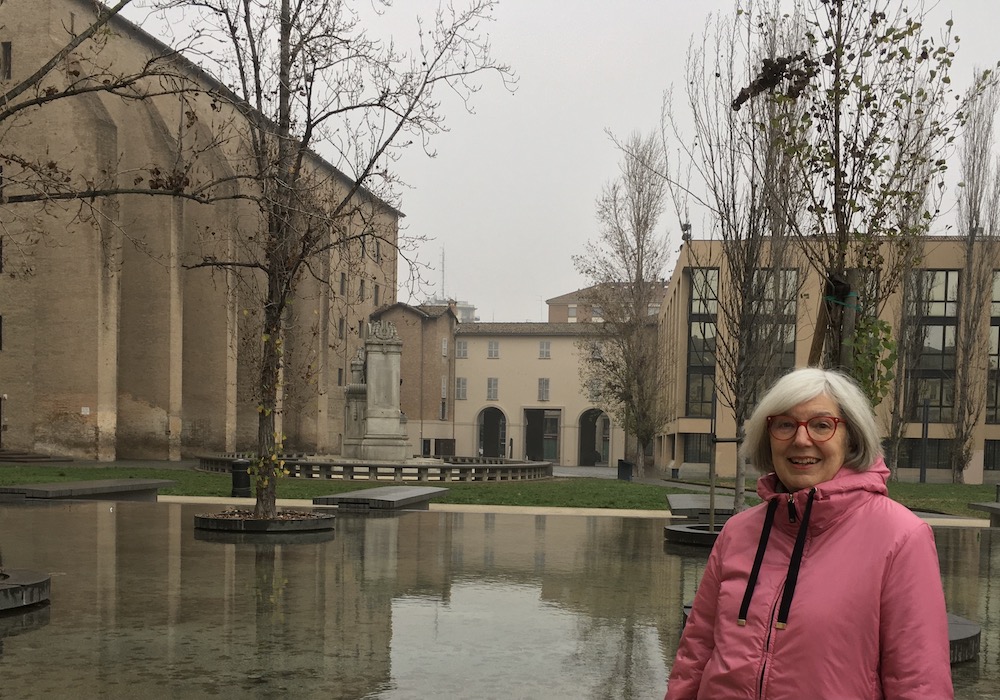Special City Series: Ireland 2015
If each city is like a game of chess, the day when I have learned the rules, I shall finally possess my empire, even if I shall never succeed in knowing all the cities it contains.
—Italo Calvino, Invisible Cities
Can you describe the mood of Dublin as you feel/see it?
It’s difficult to do, and possibly arrogant. Last Friday night, for example, the atmosphere seemed happy, joyous, in the city center—while I was there. It wasn’t necessarily like that elsewhere in the city. It’s a very loud city—people talking, talking, talking. All my life it’s been like that. Through bad and good times. I’d be worried if the talking diminished or ceased.
What is your most heartbreaking memory in this city?
The Stardust fire, the fourteenth of February, 1981. The Stardust nightclub was a few miles from where I grew up and lived. The fire killed forty-eight young people. I didn’t know any of the dead, but I was in my first year as a high school teacher and I was beginning to know the sisters and brothers, cousins of young people who were injured. It was an appalling tragedy. Emergency exits were chained shut, the emergency lighting didn’t work. Parents sat up waiting for their children to come home. But their children didn’t come home.
What is the most extraordinary detail, one that goes unnoticed by most, of the city?
The lives of the suburban foxes.
What writer(s) from here should we read?
All of them. The two who taught me that the human noise of the city could be literature were Flann O’Brien and Sean O’Casey.
Is there a place here you return to often?
Dublin Bay. I live a five-minute walk from the sea. From the bottom of my street I can see the Spire, in the city center, and the docks, ferries and container ships coming and going, the mountains to the south of the city, the Hill of Howth to the east, planes flying over the hill, arriving. I find it exhilarating and, sometimes, inspiring—especially when the seagulls are filling the air and trying to sing “Bohemian Rhapsody.”
Is there an iconic literary place we should know?
Literary places should stay on the page, and I don’t trust the word “iconic.”
Are their hidden cities within this city that have intrigued or seduced you?
I’ve never been, nor would want to be, seduced by bricks and mortar. I find that, whatever city I’m in, I’m intrigued by the little cities inside the city. Every neighborhood has its slang, its personality.
Where does passion live here?
I haven't a clue.
What is the title of one of your works about Dublin and what inspired it exactly?
A Star Called Henry. It’s set in turbulent times, in the first decades of the twentieth century. Initially, it was inspired by family stories and Irish history—and the place where stories and history clash.
Inspired by Levi, “Outside Dublin does an outside exist?”
As long as it’s accepted that anywhere outside Dublin is the outside, yes. I’ve seen pictures of it and it looks quite nice. But it isn’t home.
Roddy Doyle was born in Dublin in 1958. He published the first editions of his comedy The Commitments (1987; made into a film in 1991) through his own company, King Farouk, until a London-based publisher picked it up. The work was the first installment of his internationally acclaimed Barrytown novels, which also included The Snapper (1990; made into a film in 1993), The Van (1991; made into a film in 1996), and The Guts (2013). His fourth novel, Paddy Clarke Ha Ha Ha (1993), won the 1993 Booker Prize. In 1994, he wrote the BBC miniseries Family, which generated heated controversy throughout conservative Ireland. The Woman Who Walked into Doors (1996) and its sequel, Paula Spencer (2006), concern the ramifications of domestic abuse and alcoholism. A Star Called Henry (1999) centers on an Irish Republican Army (IRA) soldier named Henry Smart and his adventures during the Easter Rising. Smart’s further adventures were detailed in Oh, Play That Thing (2004), which follows him as he journeys through the United States, and The Dead Republic (2010), which chronicles his return to Ireland. Doyle's short story collections include The Deportees (2007) and Bullfighting (2011). He has also written a number of books for children, including Wilderness (2007) and A Greyhound of a Girl (2011).











